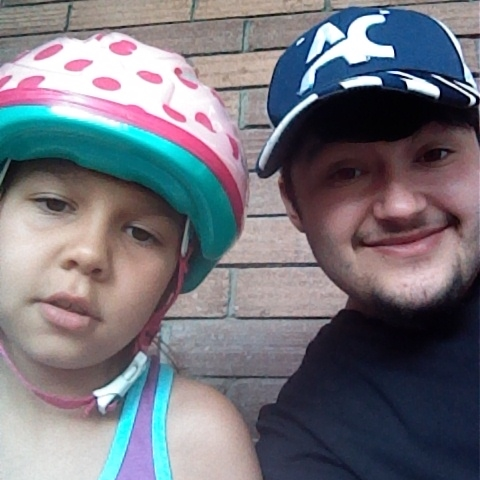Craig Davidson Answers Questions
/Recently we had an assignment to read an article and analyze it. Out of all the choices one piece spoke to me. That piece was Precious Cargo: Lessons of a School Bus Driver by Craig Davidson. The article was published in Avenue Calgary on March 5th, 2012. The article is about Craig’s year driving a bus for children with disabilities.
The piece spoke to me because Tayla has a disability. She suffered brain problems during infancy, Jess was told she likely would lose her child, and if Tayla did make it she would be a vegetable. Tayla proved her fighting spirit however and defied the odds. You would think she was a normal child until you saw all the medication she had to take to function in a day. She needs a little more help with tasks that normally, at her age, she could do by herself. All things considered, she is extremely lucky.
While researching Craig Davidson for our assignment, I found his email address and decided to write him and ask if I could interview him. I was surprised when he actually got back to me and accepted. This is what he had to say.
Sean Lalonde: Why did you feel like Precious Cargo was an important story to tell?
Craig Davidson: Hm. I guess it was more a story that felt important to me, having been a part of it, rather than feeling it was important or a social service or something like that. I think it's a lot to expect an article or a book, however passionately-written, to make a huge impact on something as huge and complicated as the way we look at special needs as a society. It was more an intimate portrait of my relationship with some of those kids on the bus.
SL: Do you still keep in contact with the kids on the bus?
CD: A little. Facebook, mainly. And I see Josh when I pass through Calgary, which is rare. It could be a bit strange --- it wasn't like I was showing up on their doorsteps after my job was over asking if they could come out and play. It was more a singular event, a singular school year, that we shared together. But our differing ages and life circumstances and geographical distance made it so we can't see each other very much at all. And that's OK.
SL: What will be the difference between the upcoming book and the article?
CD: Just a little length, really. Same essential idea. More about the relationships, some of the events on the bus, conversations, that kind of thing.
SL: How do you deal with criticism of your work?
CD: Oh, I suppose I deal with it a lot easier now. I've been doing this nearly 10 years, so your outlook changes. You aren't so sensitive. Mainly, I just ignore it. I don't go to those venues, review sites and so on, that might give me a headache. Avoidance is key. But if I read criticism that seems fair and measured, I take it to heart and try to improve.
SL: What advice would you give to young aspiring writers?
CD: Just keep writing. It's a job as much as "art." Don't wait for the muse. Treat it seriously, as a job, and don't be precious about it.
Photo Credit: Jyn Meyer











